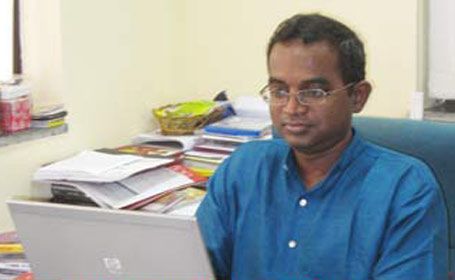
EMI Music India managing director T Suresh:
The most significant development this year from our perspective as a non-film music company was the entry of full track services like iTunes and flyte coupled with the consolidation of the Nokia Music Store. The share of international music was exceptional on these services and if we take all of non-film music as a whole the share moved up to upwards of 40 per cent. Contrast this with the early years of digital music driven primarily by the caller tune service where bollywood accounted for over 70 per cent of the digital business. These new services moved the power of choice to the music fan and it is clear that the fan wants to consume a wide variety of genres.
Another encouraging development of the year was the growth in live performances of international music artists. Most significant was the huge success of EDM (electronic dance music) showcased by the David Guetta tour and the Swedish House Mafia tour. With each of the shows attracting over 10,000 fans these two EMI artists set a new benchmark for live music. It was also a year when EMI’s global pop superstar Katy Perry performed at the IPL opener to a huge crowd and national television. This year also saw Simple Plan headline Mood Indigo. The Heavy Metal genre continues to captivate young audiences with Opeth, Gojira, Megadeth among many others to perform in India. Going by the success of these acts it appears that the trend is only likely to accelerate in 2013.
EMI has been home to some of India’s most exciting bands – Advaita, Swarathma, Susmit Sen, Mrigya, Menwhopause, Sky Rabbit among others. 2012 saw a significant growth in indie festivals that gave the youth across cities an opportunity to see their favourite bands. In the absence of mass media support, music festivals have become a good route to creating pan-India exposure for promising new bands.
Musical experimention has always been an essential part of the EMI new recordings plan of any year. The new phase of digital music, growth in indie music festivals, exposure to TV shows like Coke Studio and Dewarists made it much more rewarding to try out musical experiments. Audiences are today more receptive to new musical styles and we worked on creating contemporary variants of traditional genres – devotional, classical, ghazal, sufi. Contemporary devotional album Ganaraj Adhiraj 2012 brought a youthful new sound to devotional music and featured Shankar Mahadevan, Salim Merchant, Hariharan among others. Ghazal Lounge saw Roop Kumar Rathod and Abhijit Pohankar give the classic romantic ghazals a nice chillout feel. In south India the effort was two pronged – classical maestros like Unnikrishnan and playback stars like Karthik and Suchitra worked on contemporary avatars of traditional works. Purbayan Chatterjee developed a unique sitar interpretation of great western classical works, Ricky Kej worked on Indian and western drums to create a percussion-dance theme. These and several other new recordings of the year were successes and highlight the fact that we are probably entering a new era of A&R, an era where bold experimentation will rule.
Along with the growth of opportunities for new music to be distributed it was also good that platforms to recognize artists like the GIMA awards continued to grow. With 13 nominations and 4 non-film awards it was a good year for our artists.
The year also saw the release of the 10 CD definitive collection of Pandit Ravi Shankar. It captures 4 decades of his best works with EMI, including parts from his Grammy winning recordings and collaborations with Ali Akbar Khan, Yehudi Menuhin and Jean Pierre Ramphal among others.
The physical side of the business continued to decline sharply but there were some encouraging trends even here. Adele’s 21 stayed on the physical retail charts for months showcasing the durability of the CD, so did south Indian playback star Karthik’s carnatic fusion album. Niche segments like Carnatic Classical did well during the December season of performances in Chennai. This series of concerts, the biggest in India also saw physical sales of classical music zoom to levels higher than the previous year for EMI. Niche genres continued to show some stability in the physical format and we lauched about 20 new releases this year in Carnatic classical and fusion including artists like Suchitra, Sanjay Subrahmanyan, Abhishek Raghuram, Sikkil Gurucharan among others. While decline in physical is inevitable, it appears that the physical side can continue to do good business for the next few years if more retailers concentrate on the essentials – right stocking and knowledgeable staff.
To sum up some of the interesting developments of the year –
• Music fans want to consume a wide range of genres and the emergence/consolidation of new services like the Nokia music store, flyte, itunes puts the power to choose in the hands of the fans and non-film ( specially international music ) music grew rapidly
• Music fans want to watch their favorite artists and will pay for it – 2012 was a great year for live music from international artists
• New digital services and the growth in live music have made producing new music much more exciting and ushered in an era of experimentation